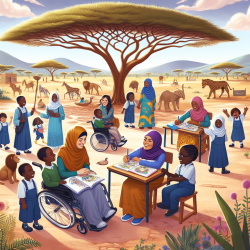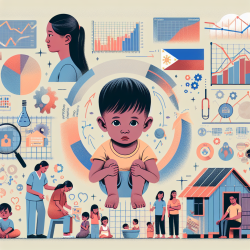The recent research article, "Education for children and adolescents living with disabilities in sub–Saharan Africa—The gaps and opportunities," provides critical insights that can significantly enhance the skills of practitioners working with children with disabilities. The findings highlight the current challenges and present opportunities for improving educational outcomes for this vulnerable population. As practitioners, leveraging these insights can drive data-driven interventions and foster inclusive education.
Key Findings and Implications
According to the research, several gaps hinder the education of children with disabilities in sub-Saharan Africa:
- High Prevalence of Disabilities: The World Health Organization reports a higher prevalence of severe and moderate disabilities in Africa compared to other regions. This necessitates tailored educational interventions.
- Limited Access to Education: More than half of the children with disabilities in Eastern and Southern Africa live in rural settings, with only about one-third attending primary school.
- Inadequate Training for Educators: Educators often lack the necessary training to meet the diverse needs of children with disabilities, impacting their ability to deliver effective education.
- Insufficient Physical Accommodations: Many schools lack the physical infrastructure required to support children with physical disabilities, leading to reduced participation and engagement.
Strategies for Practitioners
Practitioners can enhance their skills and improve educational outcomes for children with disabilities by implementing the following strategies:
- Adopt Inclusive Education Models: Successful models from other low and middle-income countries, such as Malaysia, demonstrate the importance of systematic training for special education teachers and the implementation of inclusive policies.
- Utilize Assistive Technologies: Providing assistive technologies, including hardware and software, can significantly enhance learning experiences for children with disabilities.
- Foster Collaborative Approaches: Collaboration between educators, therapists, and parents can create a supportive environment that addresses the unique needs of each child.
- Promote Early Diagnosis and Intervention: Early diagnosis of disabilities coupled with timely interventions can optimize developmental outcomes and school readiness.
Encouraging Further Research
Practitioners are encouraged to delve deeper into the research to identify additional opportunities for enhancing educational outcomes for children with disabilities. By staying informed and actively seeking out new data, practitioners can continuously refine their approaches and contribute to the broader goal of inclusive education.
To read the original research paper, please follow this link: Education for children and adolescents living with disabilities in sub–Saharan Africa—The gaps and opportunities.










